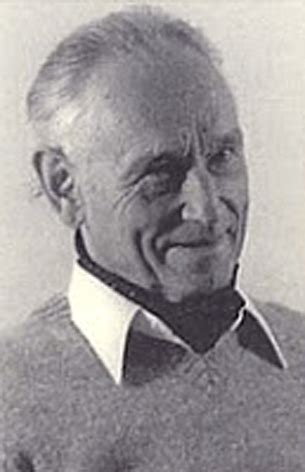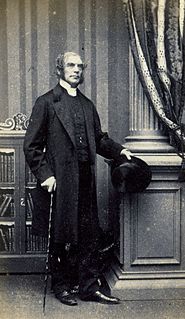A Quote by Jen Hatmaker
Faith does not always demand that God explains Himself.
Related Quotes
Faith in ourselves will do everything. I have experienced it in my own life, and am still doing so; and as I grow older that faith is becoming stronger and stronger. He is an atheist who does not believe in himself. The old religions said that he was an atheist who did not believe in God. The new religion says that he is the atheist who does not believe in himself
The law of giving and receiving is fundamental, and relates just as much to God as it does to us. As we go through the door of giving ourselves to God in worship we find that God comes through that same door and gives Himself to us. God's insistence that we worship Him is not really a demand at all but an offer-an offer to share Himself with us. When God asks us to worship Him, He is asking us to fulfill the deepest longing in Himself, which is His passionate desire to give Himself to us. It is what Martin Luther called "the joyful exchange."
If we insist on visible proofs from God, we may well prepare the way for a permanent state of disappointment. True faith does not so much attempt to manipulate God to do our will as it does to position us to do his will. As I searched through the Bible for models of great faith, I was struck by how few saints experienced anything like Job's dramatic encounter with God. The rest responded to the hiddenness not by demanding that he show himself, but by going ahead and believing him though he stayed hidden.
In Christ and by Christ, God effects complete self-disclosure , although He shows Himself not to reason but to faith and love. Faith is an organ of knowledge, and love an organ of experience. God came to us in the incarnation; in atonement He reconciled us to Himself, and by faith and love we enter and lay hold on Him.
It is a great good to be given over to the will of God. Then the Lord alone is in the soul, and no other thought, and she prays to God with a pure mind. When the soul is entirely given over to the will of God, then the Lord Himself begins to guide her, and the soul learns directly from God ... A proud man does not with to live according to the will of God. He likes to direct himself, and does not understand that man does not have enough understanding to direct himself without God.
For God to prove himself on demand, physically, would be a grave disappointment, and the strongest Christians should be considerably grateful that he chooses not to do so. The skeptic endlessly demands proof, yet God refuses to insult the true intelligence of man, the '6th sense', the chief quality, the acumen which distinguishes man from the rest of creation, faith.
The Vedanta teaches men to have faith in themselves first. As certain religions of the world say that a man who does not believe in a Personal God outside of himself is an atheist, so the Vedanta says, a man who does not believe in himself is an atheist. Not believing in the glory of our own soul is what the Vedanta calls atheism.
You are not called to believe in your love to God, but in God's love to you! Do not argue, 'I cannot love God! I have striven to my uttermost to do so, but have failed in all my endeavors, until in despair I have abandoned the thought and relinquished the attempt.' Be it so- no effort of your own can strike a spark of love to God from your heart. Nor does God demand the task at your hands. All that He requires of you is faith in His love, as embodied and expressed in Jesus Christ to poor sinners.
It was not to save a nation that Abraham went to sacrifice Isaac, nor to appease angry gods... Then why does Abraham do it? For God's sake... He does it for the sake of God because God demands proof of his faith... He was not justified by being virtuous, but by being an individual submitted to God in faith.
When you face two options and each seems to please God, consider the one that displays God's glory, power and strength. This makes room for God to reveal Himself to you and show Himself through you. Don't be fearful about the hard road he may ask you to take He desires to show Himself strong in you and will encourage you to do things that require trust and faith.


































